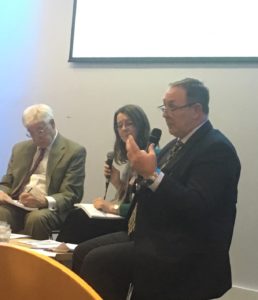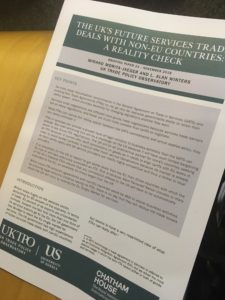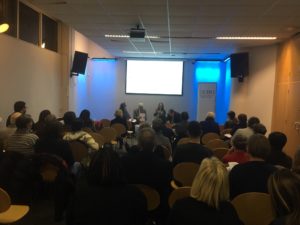The leader of Greater Brighton has urged for the region to tackle Brexit head on after research revealed one in 20 jobs in the South East could be at risk from a “No Deal”.
With the region exporting £45.3 billion worth of goods, a report titled The Brexit Burden by the internationally-respected UK Trade Policy Observatory (UK TPO) claims that the UK crashing out of the European Union could have major ramifications on the local economy.
Findings, which focus on the impact on 34 constituencies in Sussex and Hampshire, reveal there could be a potential loss of about 2.6 per cent (39,000) of total employment across those counties in the next three to eight years.
 Research added that when commuter habits are also taken on board, this indicative figure could rise to 43,000 jobs among residents in these areas – with businesses in Brighton Pavilion (2,021 – 2.9 per cent of total jobs) and East Worthing and Shoreham (1,049 – 3.1 per cent) among those predicted to be worst affected.
Research added that when commuter habits are also taken on board, this indicative figure could rise to 43,000 jobs among residents in these areas – with businesses in Brighton Pavilion (2,021 – 2.9 per cent of total jobs) and East Worthing and Shoreham (1,049 – 3.1 per cent) among those predicted to be worst affected.
But, speaking at the launch of the report, Councillor Garry Wall, chairman of the Greater Brighton Economic Board, said it was important that the City Region – which stretches from the south coast to Gatwick Airport – did everything possible to help the economy continue to thrive.
Cllr Wall said: “Clearly Brexit poses major challenges and uncertainty, which this report only highlights further. Our job at a local and regional level is to make sure that we do what we can to meet those challenges head on.
“We have faced adversity before. Like everywhere else in the UK we took a big hit with the banking and financial crisis in 2008. But over those ten years we have seen our economy continue to grow, with 40,000 jobs created across the city region.
“The onus remains on the Greater Brighton Economic Board to present a strong unified argument to lever in investment that this region requires. It is only by doing that that we create the infrastructure to unlock growth and provide good-quality well-paid jobs for our residents.”
 The report by UK TPO, which is a partnership between the University of Sussex and Chatham House think tank, was launched this week (November 20, 2018) at the Clarendon Centre in Brighton.
The report by UK TPO, which is a partnership between the University of Sussex and Chatham House think tank, was launched this week (November 20, 2018) at the Clarendon Centre in Brighton.
It noted that a “No Deal” Brexit scenario could be particularly disruptive to the economy of South East England because the region is heavily engaged in cross-border trade through Gatwick Airport, Newhaven Port and Shoreham Port.
While the report noted that Brighton Pavilion would have the largest number of total jobs lost, the constituencies of Worthing West (1,300 – 3.6 per cent of residents) and Brighton Kemptown (1,269 – 3.5 per cent) would also be badly affected in terms of percentage of working population.
The report also noted that a soft Brexit would result in the loss of about 20,000 jobs across Sussex and Hampshire during this time.
Cllr Wall, who is also leader of Mid Sussex District Council, said: “Regardless of the outcome of Brexit one thing is clear: we know that with a modicum of investment we can launch ourselves into a brave new world.
“We in the South East are the second biggest contributor to the UK economy behind London but do we have that status? Our region needs government help too in delivering growth through digital infrastructure, jobs and transport.
“We do not have a Midlands Engine or Northern Powerhouse with a mayor who has a strong enough voice which government listen to. Whatever happens with Brexit we need to present a strong clear argument. It is only with clarity and evidence that we will be able to show that we can deliver.”
 Dr llona Serwicka, a Research Fellow in the economics of Brexit at UK TPO, said: “This research makes very clear that both soft and hard forms of Brexit, but in particular, a ‘no deal’ Brexit, are likely to have a negative impact on the lives of many residents in Hampshire and Sussex.
Dr llona Serwicka, a Research Fellow in the economics of Brexit at UK TPO, said: “This research makes very clear that both soft and hard forms of Brexit, but in particular, a ‘no deal’ Brexit, are likely to have a negative impact on the lives of many residents in Hampshire and Sussex.
“Of course, we cannot say for certain that this number of job losses will definitely happen, as employers may choose to reduce number of hours and wages rather than cut workforce numbers. But this analysis gives some indication of which places in our region may be most vulnerable to Brexit.”
To read the full report visit: The Brexit burden: A constituency level analysis for Hampshire and Sussex.

